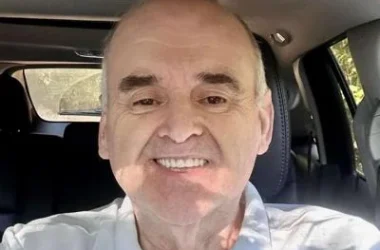By JAKE ZUCKERMAN
Charleston Gazette-Mail
CHARLESTON, W.Va. — The West Virginia attorney general issued an advisory opinion last month that could hold the door open for political groups seeking to publish campaign material anonymously.
Citing precedent from the U.S. Supreme Court, namely McIntyre v. Ohio Elections Commission, Patrick Morrisey said a current West Virginia law that prohibits the anonymous publishing of campaign materials contradicts the ruling and infringes on citizens’ free speech rights.

Patrick Morrisey
While some have expressed concern with the opinion given Morrisey’s candidacy for the U.S. Senate, academics and elections officials said the interpretation falls in line with their understanding of court precedent.
Morrisey, through his spokesperson, declined an interview request for this report, as well as emailed inquiries.
The West Virginia Secretary of State’s Office requested the opinion when it began receiving calls from constituents regarding whether anonymous campaign pamphlets they received were legal, from candidates who wanted to know if or when they needed to disclose their identities on electioneering materials, and regarding an April 8 articlein The Dominion Post on the subject.
Donald Kersey, elections director and deputy legal counsel for the Secretary of State’s Office, said while the advisory opinion does not supersede state law, it, in effect, says the state law would likely be deemed unconstitutional by a judge.
“The law is this: It says you can’t publish anonymous placards for statewide campaigns,” he said. “However, the Attorney General’s Office has issued an opinion that says that part of West Virginia law, which is still in effect, is actually likely unconstitutional.”
He said while the Legislature passed the law in an attempt to curtail the spread of misinformation in an election, the Supreme Court holds that such restrictions on speech need to be tailored more narrowly than the current statute.
While the opinion states the Secretary of State’s Office received numerous complaints, Kersey said they were informal complaints shared via phone.
Bob Bastress, a longtime constitutional law professor at the West Virginia University College of Law, said the opinion struck him as a proper interpretation of Supreme Court rulings. He said American history is pockmarked with anonymous speech influential to the country’s formation and maturation.
“There are a lot of reasons for that; one of them is historical. Anonymous hand-billing goes back to The Federalist Papers, for that matter, they were written anonymously,” he said. “And Chief Justice John Marshall was famous for — these weren’t anonymous hand bills — but he wrote a lot of letters to the editor under pseudonyms, which would be unheard of today. It’s partly traditional and historical, and partly because requiring people to disclose their identity can have a chilling effect, particularly when you’re dealing with candidates who might create some backlash.”
The Federalist Papers were a series of essays written by Alexander Hamilton, James Madison and John Jay, published under the nickname “Publius,” promoting the newly established U.S. Constitution. Marshall was a chief justice on the U.S. Supreme Court.
Along with Bastress, Shauna Fisher, an assistant professor for the WVU department of political science, said while she believes the advisory opinion aligns with court precedent, it will leave a lot of wiggle room for false information to enter the electoral process.
“As we increasingly enter the era where campaigns happen online, I think we’re learning that maybe voters can’t be trusted, and that some mechanism to filter information is probably in the interest of our democracy,” she said.
“Voters like to have low-cost access to information. I don’t know if we can all be trusted to fact-check stuff, so if there is no mechanism for filtering them, yeah you’re going to have false information affecting election outcomes, which is, in fact, threatening to the principles of our democracy.”
She said the court has been increasingly hesitant to curb any political speech in recent years, opting to leave it to the marketplace of ideas to correct misinformation rather than get ahead of the situation.
As to how the Legislature could frame a law that might pass judicial scrutiny, she said perhaps if it prohibited anonymous speech only in a limited time frame before an election, the Supreme Court might approve it.
One problematic area of the Supreme Court opinion, as noted by both Fisher and Kersey, arises if a candidate named in anonymous election material deemed to be untrue sought to file a libel suit against its publisher. Both said the candidate would likely need to track down the source of the material or lack a venue for retribution.
Not everyone stood behind Morrisey’s opinion.
Delegate Isaac Sponaugle, D-Pendleton, said he finds it convenient that Morrisey, in the middle of a Senate campaign and with a history of special interest groups backing him financially, would issue an opinion that could give outside groups more power in an election.
“Generally speaking, you would like to know where the source is,” he said. “I think sunshine is the best disinfectant. Obviously, acting in darkness, coming in with dark money coming in and slamming somebody and not putting your name to it is slimy at best.”
He thinks the opinion will lead to anonymous ad blitzes just before Election Day that could decisively tip the scale one way or another.
See more from the Charleston Gazettte-Mail




